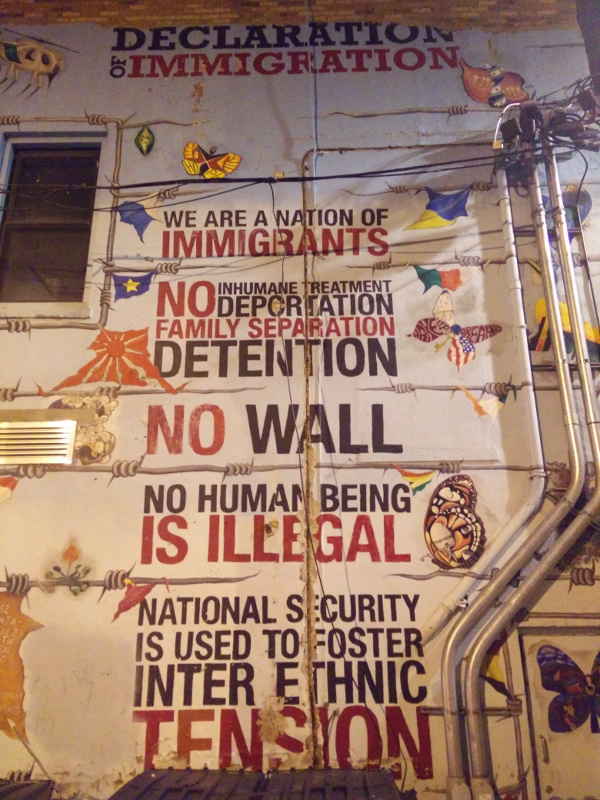
America has no official language, but in some parts of the country you could be forgiven for thinking that Spanish, not English, deserves the title. It is a very strange feeling to walk into a shop in a Spanish-speaking neighbourhood and find yourself unable to communicate except by a vague series of hand gestures and words you hope are common enough to pierce the language barrier. The experience is deeply alienating. Imagine what it must be like to feel that all the time, to be constantly confronted by your alien-ness and considered illegal by the place you call home.
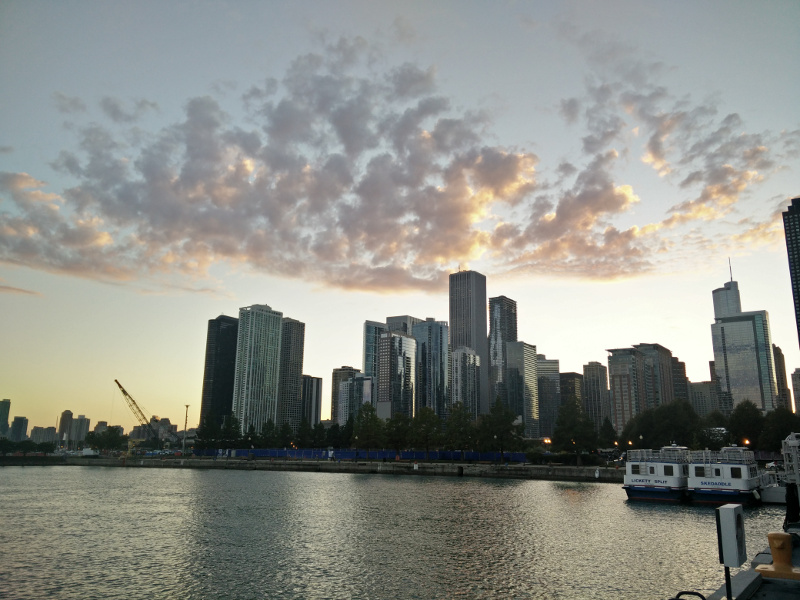
On a map, it's nearly impossible to see what a city is going to be like. Sure, you can get an idea of its rough layout, how large, how concentrated, where the city centre is, but you don't get any sense of its personality. What is it like to live in this place? Are the people friendly? Is there good infrastructure? Is it nice to walk around? Surprisingly, these questions, so difficult to answer with a map, yield answers after just a few minutes of arriving. The city can't help but tell you who it is; it's reflected in every park, every building and street. The forces that shape the little things shape the big things too, micro-structure turning into macro-structure, until the final result is written across the sky like a banner. Each city is unique, and its skyline is its fingerprint.
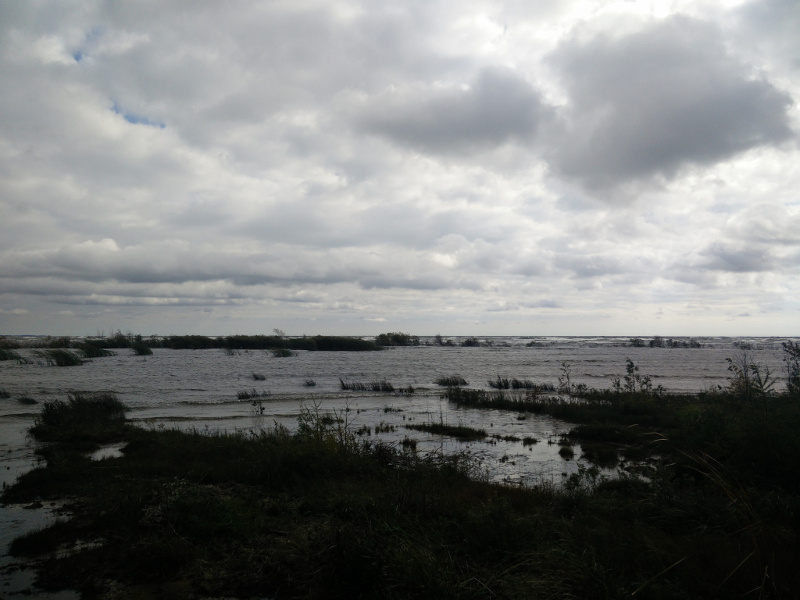
No matter how many times you remind yourself, the scale of America is a constant surprise. The number and size of the cities, the enormous road network interconnecting them, and a population so large and diverse it may as well be fifty different countries. But before America-the-society was America-the-land. No matter how many people there are, no matter how populous, you can still find parts of this country where nobody lives, empty stretches of wilderness away from civilisation. These places give a tiny glimpse of how this land must have looked long before it was tamed, how mighty and how dangerous.
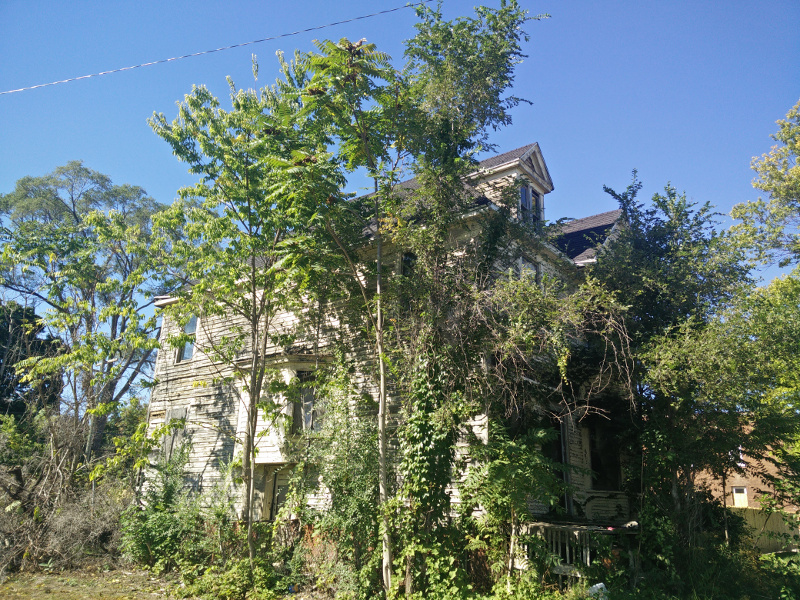
It's easy to see the only the worst of American patriotism, when it manifests as jingoism, intolerance, or warmongering. In Detroit you can see patriotism at its best. There are perhaps no people more in love with a city than Detroiters with Detroit, and you see it in how they respond to the decimation of their hometown. In other places, perhaps, the losses would turn into a full-on rout as people flee the city for somewhere on the way up instead of down. Here, you get a sense of grim optimism, like a doctor desperately performing that last-ditch CPR: "no, damnit, I won't let you die". Detroiters won't let Detroit die. Despite the abandoned buildings and empty lots, you can still feel something unmistakeable underneath. A heartbeat. Life.
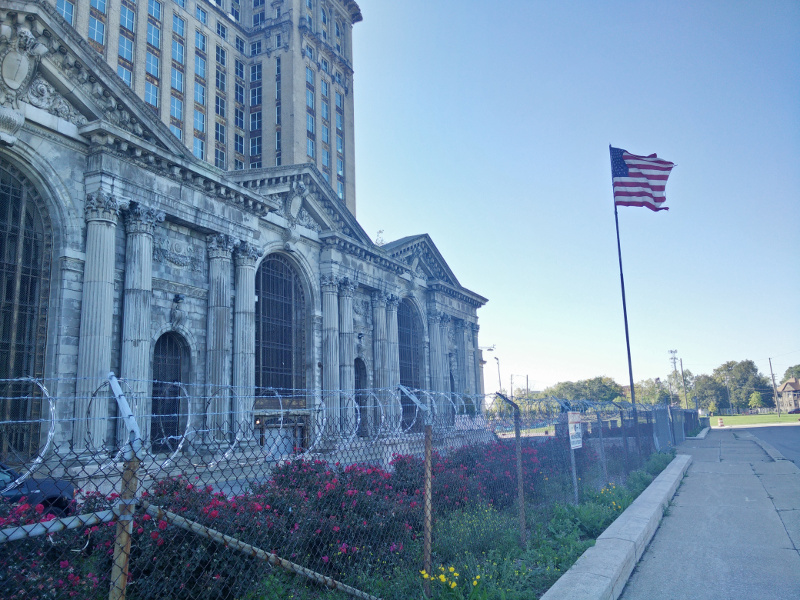
The only thing more reliable than the eventual fall of every great empire is the belief that they and they alone are the exception. America the mighty, America the brave, America the immortal. But to see Detroit is to see America humbled, and in the causes of the crisis you see how easily the empire could fall. An out of control banking sector, runaway wealth inequality and government corruption together tore a wound in the American economy that brought it to its knees. Detroit is that wound, still bleeding as America climbs to its feet once more. But those causes remain unsolved, and the question is whether it will learn from its defeat, or stand unbowed, still assured of its immortality, right up until the final blow comes.




